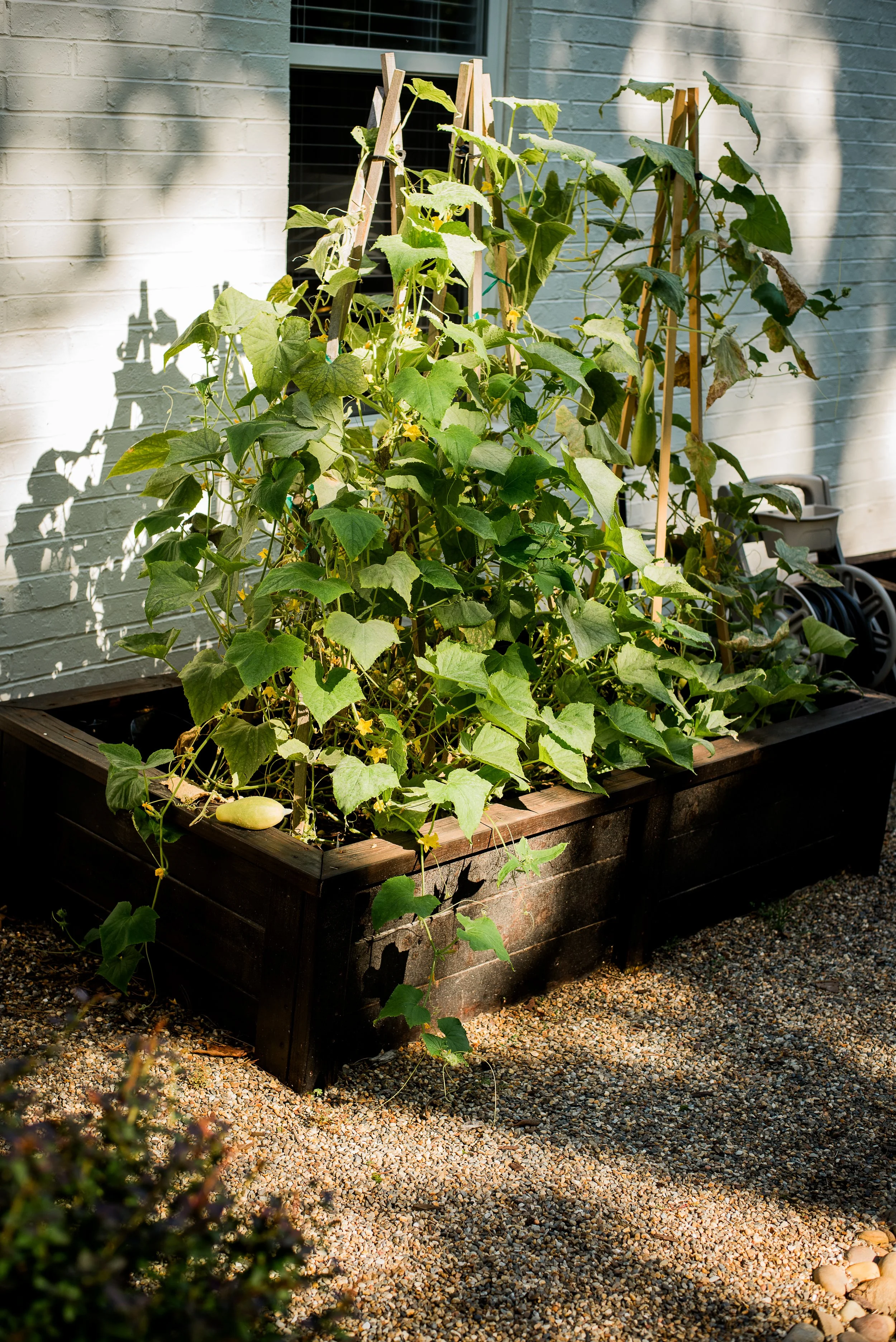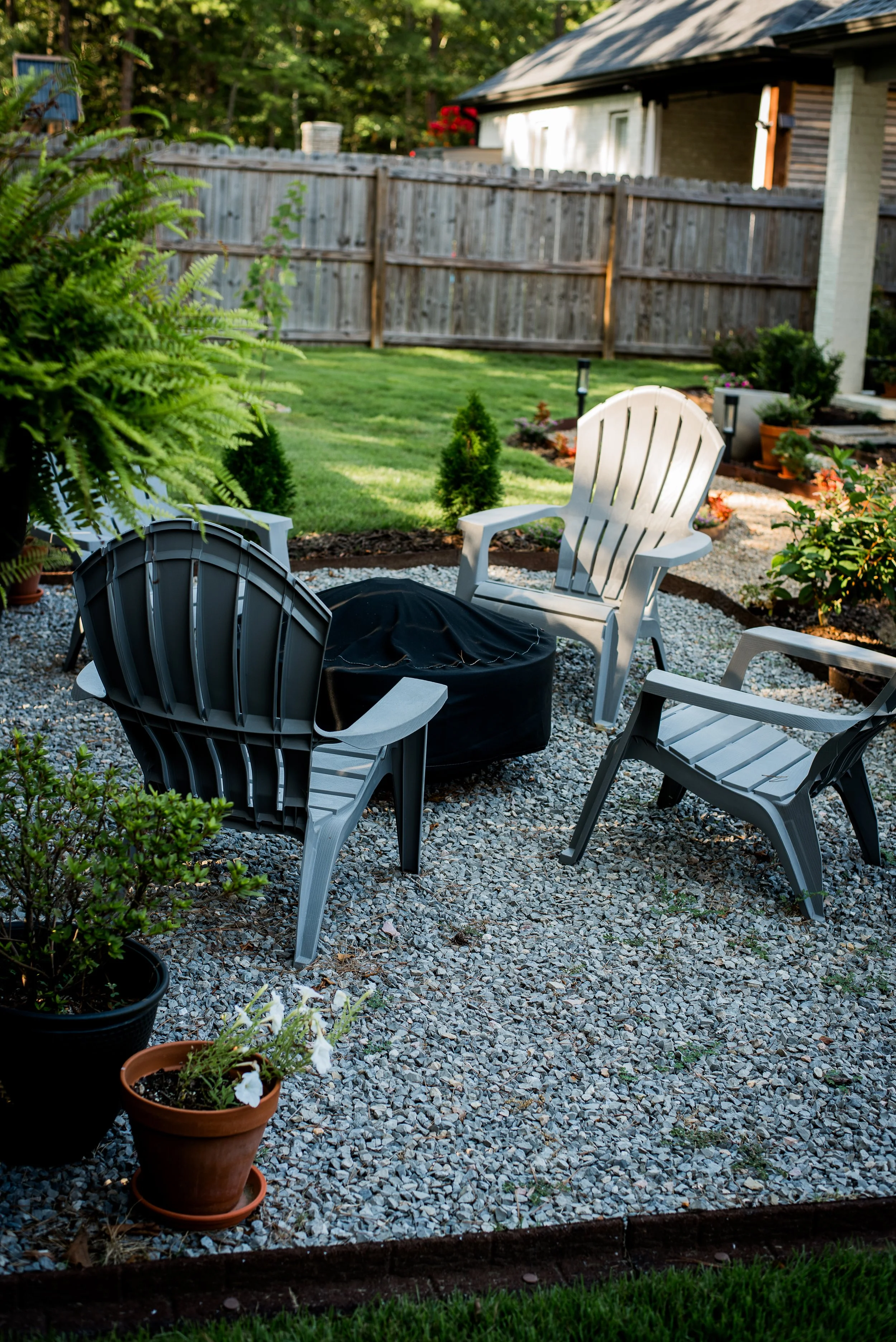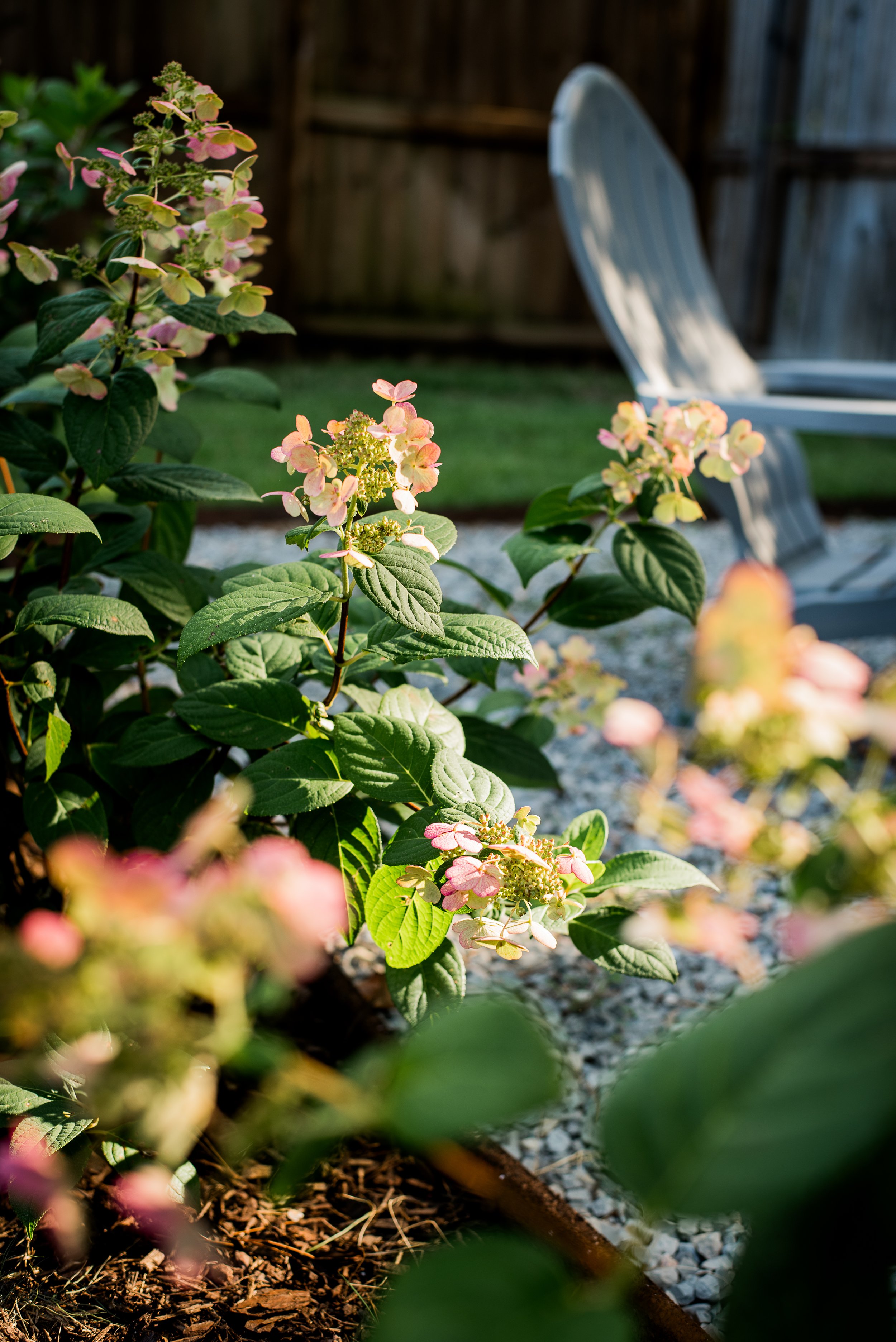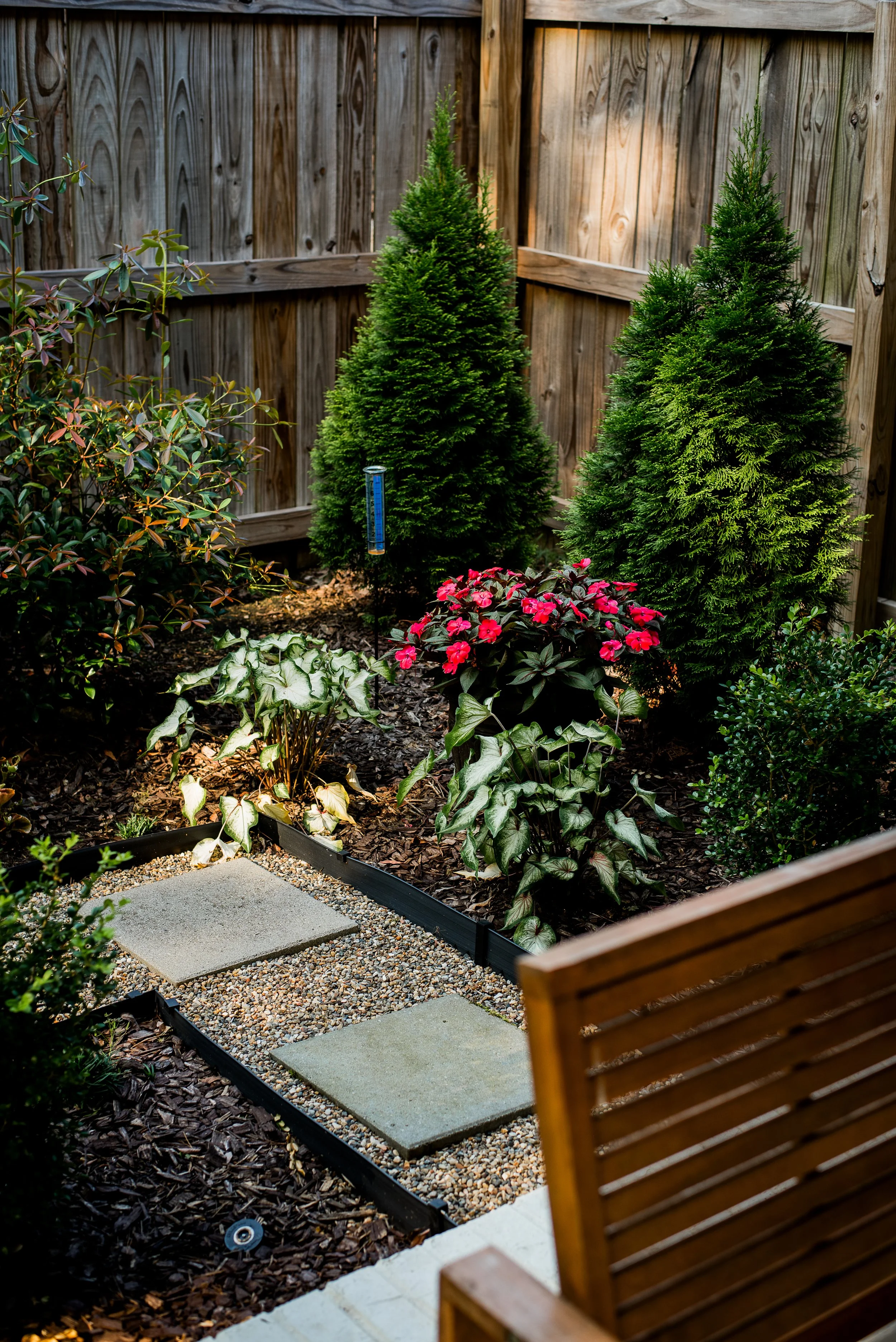7 School Lessons from my Garden
To maintain my sanity as an educational leader, I throw myself into my garden at every available moment. I retreat into the calm and purposeful work that stewarding a natural space requires. Surrounded by soft afternoon light, my soul is nurtured back to peace as my hands work the earth and tend to delicate life. My presence is felt and needed here. In this space, I’m a creator. I’m tasked with pulling disorder to order, chaos to beauty, death to life. These cosmic processes point me to The Creator. It’s stunning to witness and partake in His design. As a gardener, I play by His rules with His gifts.
As educators, we do the same. Following His rules for growth and development, we cultivate delicate lives. Lives we have been entrusted to steward and treasure. Our wise and steady presence is desperately needed. May the lessons of my garden encourage you to see your work in a softer afternoon light. A light that breathes greater purpose and trust.
WEEDS GIVE PURPOSE | joy in the daily annoyances
My greatest annoyance is weeds. I can spend an afternoon ripping them from the ground, only to return the next day to twice as many as the day before. Haven’t I scared them all away by now? Shouldn’t my daily presence make them shudder in fear? Regardless, new sprouts emerge, beckoning me to come outside and fulfill my daily duty. Recently, it dawned on me that my garden would be too easy to manage without the weeds. There would be no conflict or challenge to master. There would be no daily purpose to return again. The same is true in our schools. Without students running through the hallways, arriving out of dress code, or causing hurt to one another, it would be too perfect. There would be no challenge to overcome. There would be no child to mentor. There would be no need for growth. Rather than feeling annoyed with the weeds of a school day, find joy in the daily purpose they provide.
STORMS ARE VITAL | clean up quickly from major challenges
The prized jewels of my garden have always been and will always be my roses. I absolutely love them. Every hue and variety is stunning to my eyes. This love of roses has made me very protective. Whenever our local meteorologists announce a pending storm, my heart sinks. I immediately cut the most vibrant stems and place them in a vase for my kitchen island. However, this past summer, a storm caught me off guard. The news station and weather apps didn’t predict a hail storm in our area. Instead of saving my prized roses, I watched from my bedroom window as ice cannonballs besieged their blooms. The next morning, I held my breath as I opened the backyard gate. Rose petals, pine needles, and branches covered my once pristine garden. The only option is to prune the brokenness back and rake up the debris. Teaching is full of unexpected hail storms. An accusatory parent email, major conduct case, or career change can immediately derail steady growth, making you question your lack of preparation. However, many times, the greatest defense from these storms is simply accepting that they will occur, regardless of your ability to forecast correctly. Therefore, have your pruning shears and rake ready. Place loving accountability, prune back brokenness, clean up the emotional mess, and delight in the mercies of a new day.
OVERWATERING CAUSES DAMAGE | students should struggle
On Sundays, my wife and I enjoy looking at houses. Grabbing a cup of coffee, driving around, and nitpicking properties out of our price range make for a lovely date. My wife notices the homes. I notice the yards. When a lawn is dark green and lush, I swoon. To match the perfection of grander estates, I fertilize; I dethatch; I water. However, in an effort to hydrate my grass in the scorching summer heat, I overwatered and infected an area of my lawn with a deadly fungus. The unsightly section slowly withered and remained barren until the following growing season. Too much of a good thing can lead to shallow roots, water dependence, and ultimately, rot. With the students placed in our care, we can often overcare. With pure motives, we aim to ensure their success. We want them to grow into thriving lawns. Unfortunately, this causes us to be too quick to rescue them at the first signs of struggle. As a result, our students have a shallow sense of resilience, a dependence on aid, and a crippling rot of entitlement. My advice? Turn off the water hose and encourage students through hardship. Good stewards model how to reflect upon the hardships and celebrate the successes of any struggle. May our efforts encourage students to be drought-tolerant and rooted in something deeper.
FRUIT GOES BAD | leverage teacher and student strengths
Before I share this story, I need to set some things straight. Cucumbers are fruit. I know that chefs would define cucumbers as vegetables due to their flavor profiles. However, from a botanical perspective, they are fruit. Fruits have seeds and grow from the flower of a plant. Cucumbers have seeds and grow from small yellow flowers. Vegetables, on the other hand, have different edible parts, such as the roots, stems, or leaves. Now that the air is cleared, I grew cucumber fruit last summer. Did I have big dreams of growing a fair-sized blue ribbon cucumber? I sure did! Did I dream that the neighborhood would buzz about my success? Absolutely! However, I quickly noticed that the bigger the fruit grew, the more ripe it became. Unfortunately, my award-winning gardening dreams were shattered. Every large cucumber was completely inedible and strangely discolored. Due to my pride, my fruit was wasted. At times, leaders and teachers must know when to get out of the way. Those within our care all have God-given gifts or fruit. Those gifts grow over time through our coaching. However, there comes a time when their talents can become overripe and spoiled. Fruit is supposed to be picked and used to nourish others. Knowing when to delegate and call others up is essential in a thriving school ecosystem. Do you have students that need to have a leadership role? Create one! Is a student bored in class? Challenge them to go deeper. Do you have a teacher that can leverage a special skill? Create a class, provide mentorship, or promote them! Before the fruit in your school goes bad, harvest strengths and witness exponential growth.
GARDEN GATES SHOULD TRANSPORT | environment matters
As a child, I was captivated by the key piece of furniture in C.S. Lewis’s The Lion, the Witch, and the Wardrobe. The magic awaiting any ordinary child at the back of any ordinary wardrobe was too much for my imagination to handle. Growing up in the Midwest, our modest home was not graced with the presence of an old oak wardrobe, much less a magic one. However, I do recall spending many nights sleeping on my closet floor praying for the off-chance that I might be awakened by Aslan’s crunching footsteps on a fresh Narnia snow. As you have probably realized, I was never transported to a realm of talking animals and towering giants. However, I was transformed to delight in magical spaces. This is probably why I love gardening so much. As I enter through my back gate, I’m immediately enveloped in a new world of stunning textures and enchanting smells. The dull world before the gate immediately becomes vibrant before my very eyes. I know my role here. His plan is at work. The passing seasons give me purpose. The path is straight and predictable. Beauty and truth reign.
When students pass through the threshold of our schools or classrooms, they should be transported into God’s ecosystem. Our environments should echo Eden. Students should be surrounded by beauty. They should be given clear expectations and boundaries to thrive. They should be provided purpose as academic producers. Most importantly, they should work shoulder to shoulder with their teacher. When I imagine an Eden-like environment, I picture a space that intentionally promotes student flourishing. Lighting should be soft. Smells should be soothing. Music should be inspiring. Decor should be immersive. Classroom procedures should foster efficiency and clarity. Students should be productive apprentices, working skills and knowledge with their hands. The teacher should be the master of their content, moving from student to student to model and coach. When problems arise, their tone should be inquisitive and kind. My classroom, for example, pulls students into an old world of explorers and storytellers. I have countless lamps and battery-operated candles. The walls are covered with books and souvenirs from my travels. Plants and trees adorn the remaining free space. Students sit together at a large Harkness table to collaboratively grow in wisdom. I sit in a tall leather chair listening, observing, and coaching. They dream. They connect. They work hard. Is there a wardrobe? Of course. Do I knock on the back panel from time to time? Some things never change.
SUNLIGHT CHANGES EVERYTHING | nothing flourishes in darkness
Speaking of passing through magical gates, a large rose-covered trellis makes the entrance to my backyard a delightful experience. Unfortunately, one side of my trellis receives drastically less sunlight than the other. The sun-drenched side has overgrown its metal supports, while the sun-starved side can barely grow two feet tall. This stark contrast from one side of the trellis to the other causes me to awe at the power of sunlight. Its warm rays supply nourishment and growth through the process of photosynthesis. Is the metaphor annoyingly obvious? I hope so! You might be thinking that students need to sunbathe more regularly in biblical truth. However, this metaphor isn’t for students. It is for us as educators! The only way to grow in our craft and presence as disciple-makers is to position our lives fully in His light. Furthermore, the best way to encourage spiritual growth in our students is for us to live fully in His light. If we allow, His word and spirit will purify our hearts. Through this surrender, educators will see students differently, craft lessons differently, engage with parents differently, and assess success differently. Solar-powered teachers model a flourishing life for future solar-powered students.
DEATH IS PART OF THE PROCESS | let go of dying programs
Like most people, I hate to admit defeat. I especially hate when things in my care don’t survive. Whether I replace a classroom pet before students return or my Bluetooth speaker turns off in the middle of an engaging lesson, death is always disappointing. In my garden, I struggled all growing season to keep flowers, specifically impatiens, alive. Of course, I decided to fill all the planters around my yard with them. Don’t tell my wife, but I spent a fortune. In some spots, they thrived. In others, I had to water them daily just to keep them from kicking the bucket in the scorching Arkansas heat. Barely keeping them alive was draining me. In addition, they looked scraggly and sad. I had to confess to myself that I was forcing something to work in my ecosystem because I couldn’t admit defeat. Even more, I couldn’t swallow that I wasted money. After two months and hours of watering, I threw in the towel. I let them die.
Within our schools, we can keep dying programs on life-support for far too long. If a program isn’t serving our families or students, while simultaneously draining our resources, it is time to let it go. Educational organizations are notorious for keeping practices because that’s the way things have always been done. Instead, we should view our schools as adaptive ecosystems serving an ever-changing population. We must constantly question and evaluate our practices. Since schools are already skilled at planting new programs each year, they should be equally skilled at letting dying programs go. In my garden, failed plants become compost. Their nutrients feed the soil of the new plants to come. Therefore, rather than admitting defeat, admit a redistribution of resources. This way, your garden won’t become overcrowded with countless scraggly programs, but instead, alive with needed systems that best nurture the whole.
The Gardener God
In simple humility, let our gardener, God, landscape you with the Word, making a salvation-garden of your life.
- James 1:21
A career in education can feel overwhelming and lonely. Thankfully, the Lord landscapes our hearts so we may do the same in the lives of our students. Observe His rhythms. Surrender to His design. Delight in the growth He brings. Shalom to the garden of your life.












